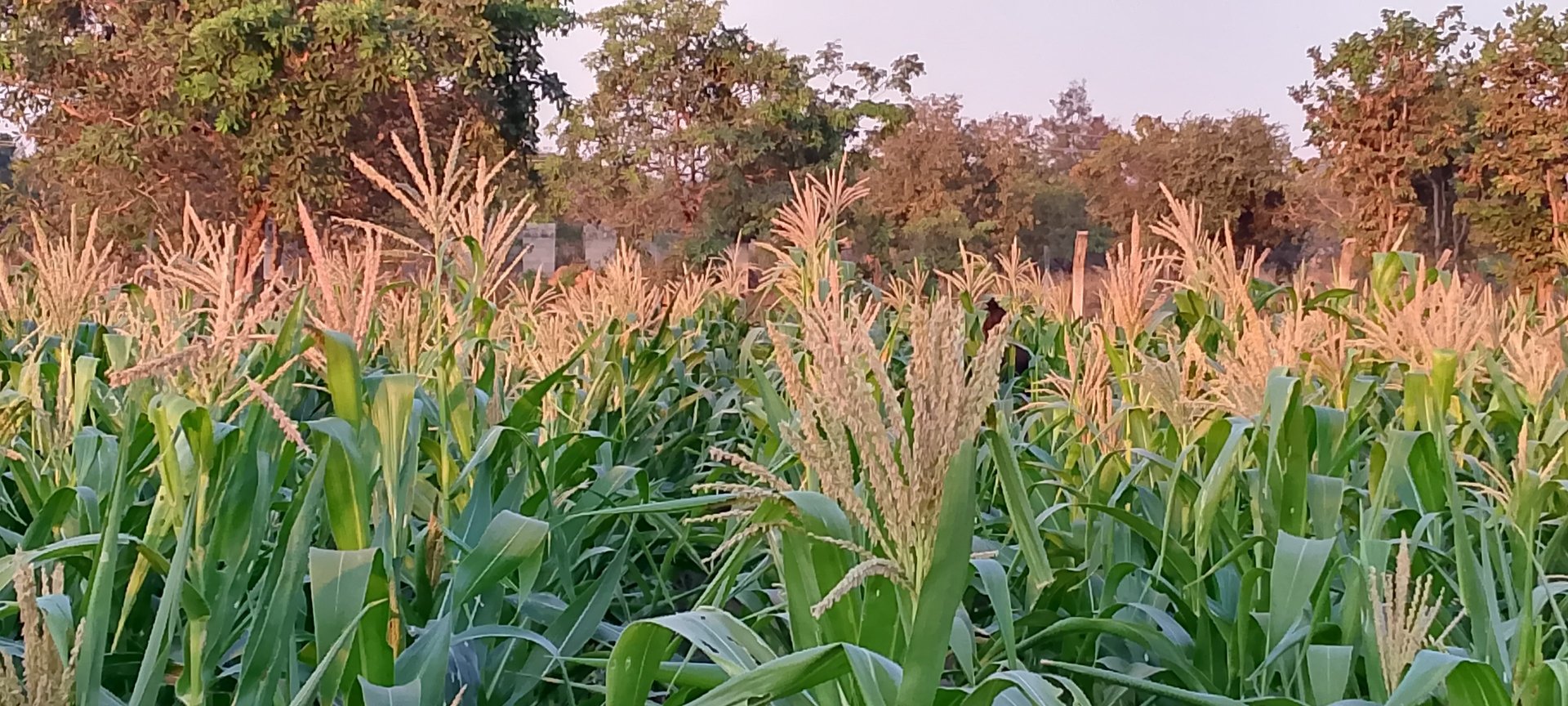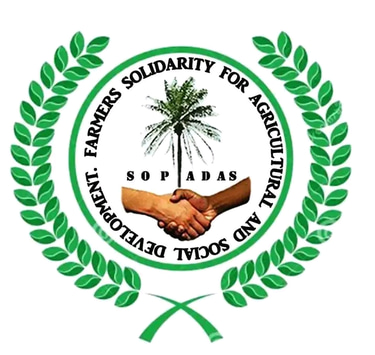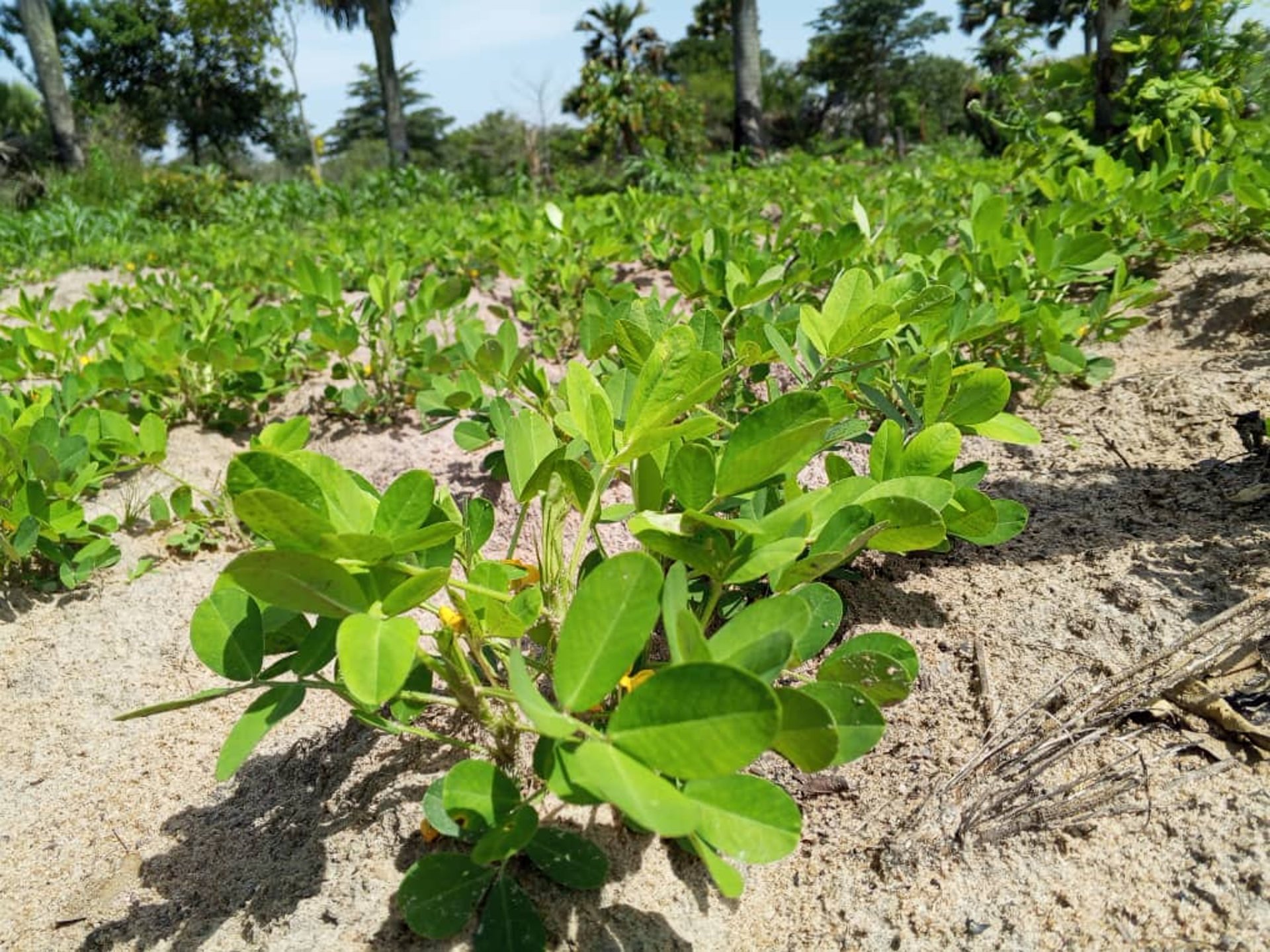4th CIGOFA, International Youth and Land Conference in Africa
CIGOFA4 is dedicated to accelerating youth land rights, with a focus on climate justice, urbanization, food security, and sustainable land governance. Through interactive sessions, keynote presentations, and collaborative discussions, we aim to empower youth voices and provide a platform for meaningful dialogue with traditional authorities, policymakers, and civil society organizations.
The conference offered a unique opportunity to network, share knowledge, and co-create actionable strategies to support the next generation of African leaders in land governance.
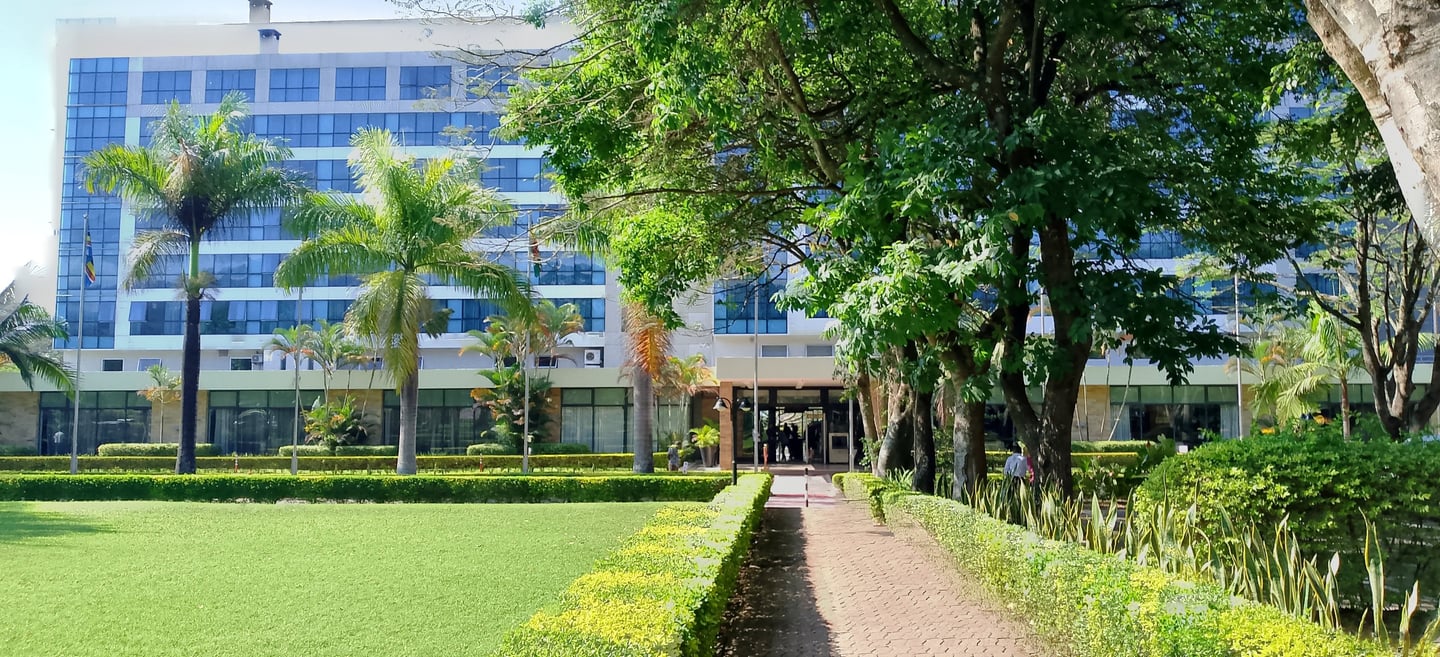

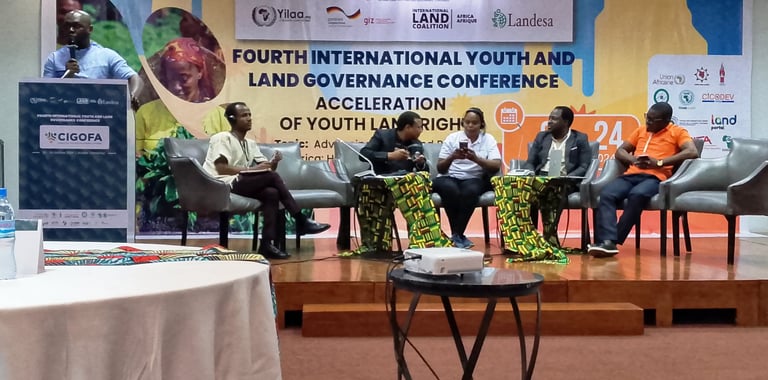

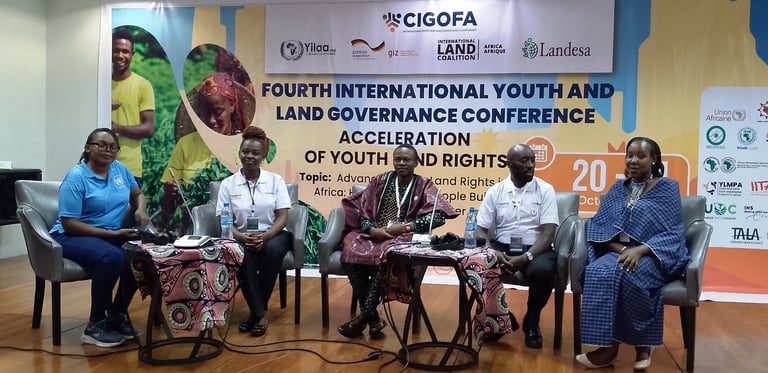

The Fourth International Conference on Youth and Land Governance in Africa (CIGOFA4) was a significant gathering held in Arusha, Tanzania, from October 20-24, 2024.
This landmark event attracted over 500 participants from various regions of Africa and beyond, highlighting the increasing importance of youth in land governance.
Central to the discussions was the theme "Advancing Youth Land Rights in Africa: Helping Young People Build a Better Future," which underscored the critical need for empowering young people to secure their land rights. Through a series of workshops, panel discussions, and networking opportunities, participants exchanged ideas and developed strategies aimed at enhancing the role of youth in sustainable land management. The conference served not only as a platform for dialogue but also as a catalyst for action, fostering collaboration among stakeholders dedicated to creating a brighter future for African youth in the realm of land governance.
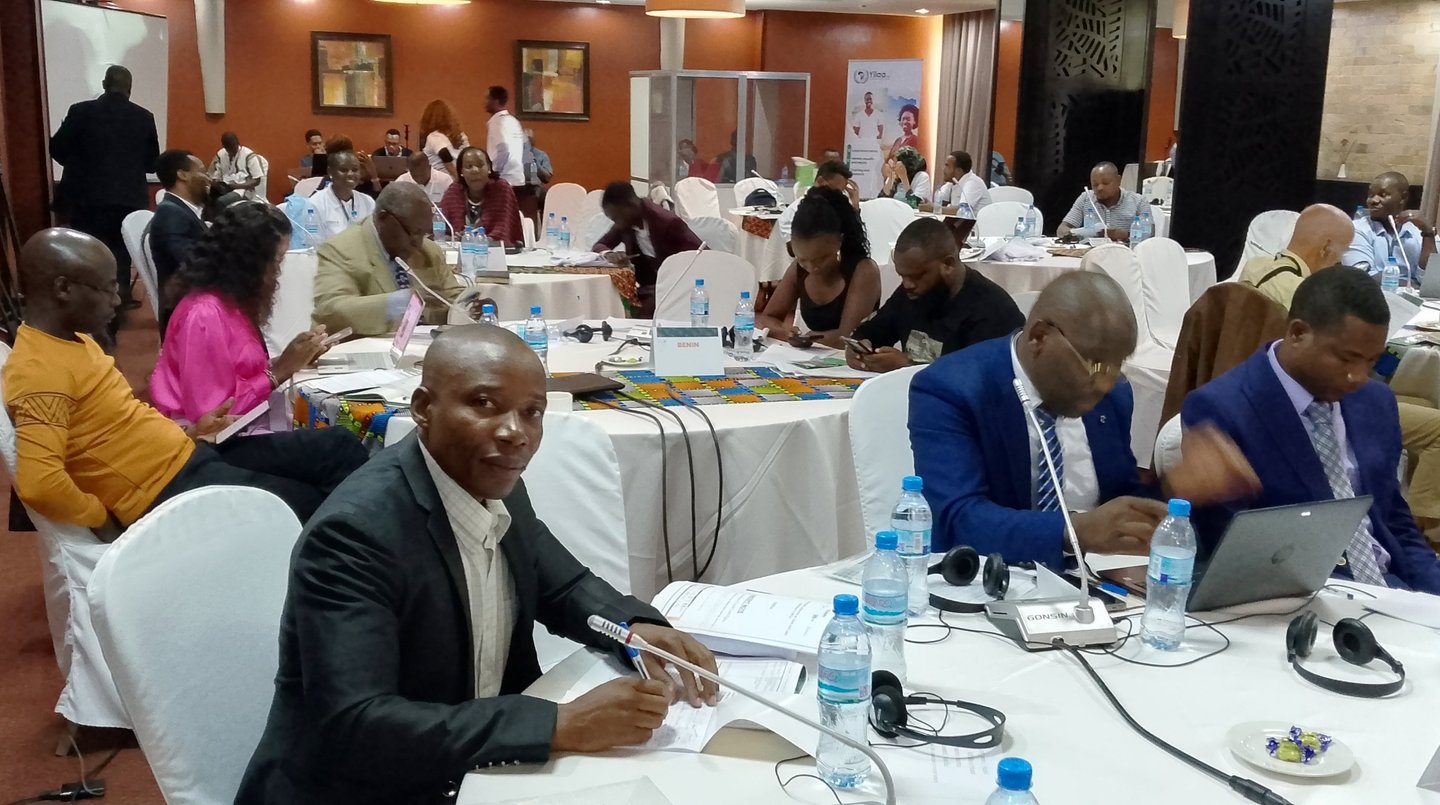

This significant event aimed to address critical issues related to youth involvement in land governance and agricultural development across the continent. Mr. B. A. Daudi (brown shirt above), our Africa representative and Secretary of Farmers Solidarity for Agricultural and Social Development (SOPADAS) from the Tanzania branch, actively participated in the discussions and initiatives.
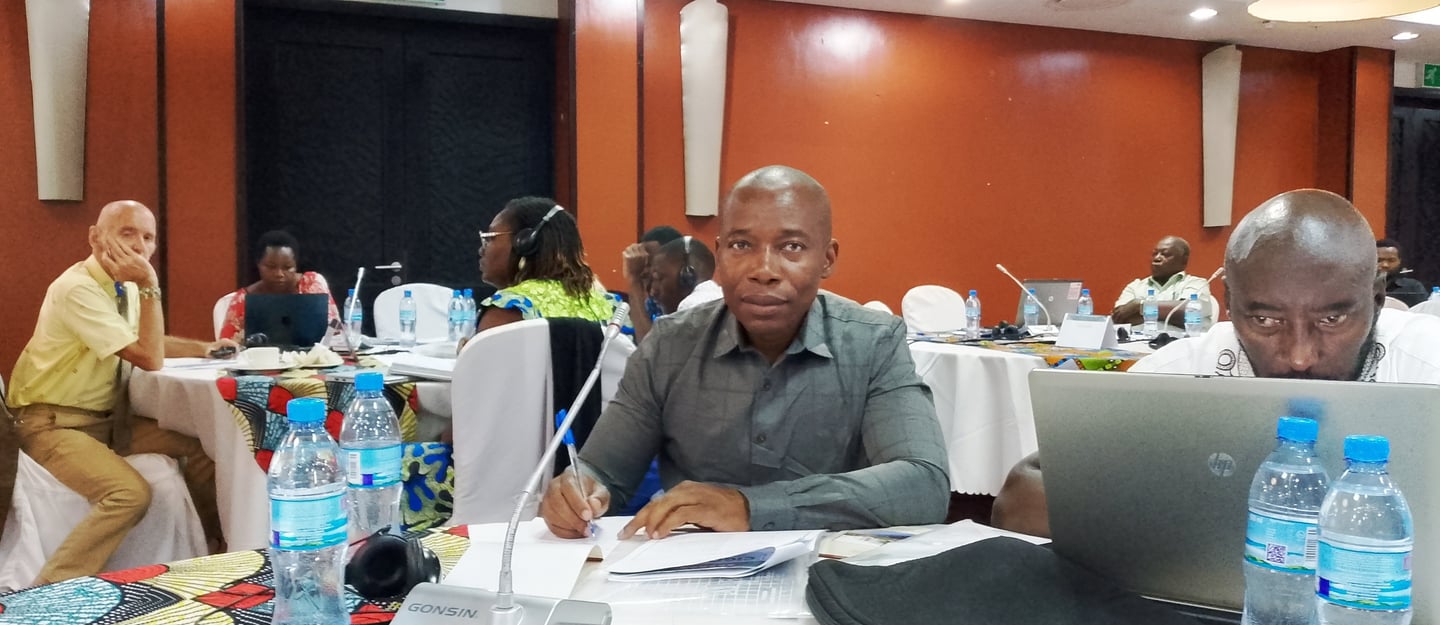

Mount Meru Hotel Arusha, Tanzania
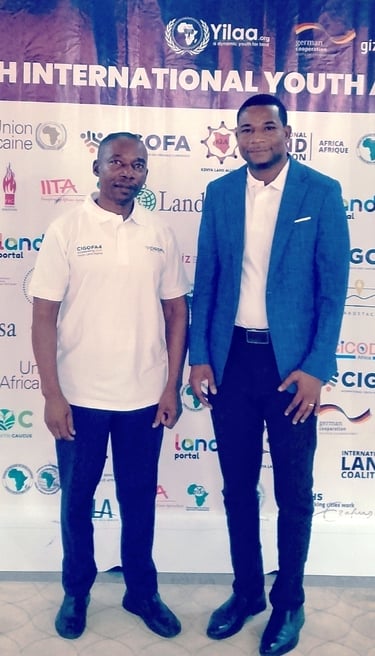


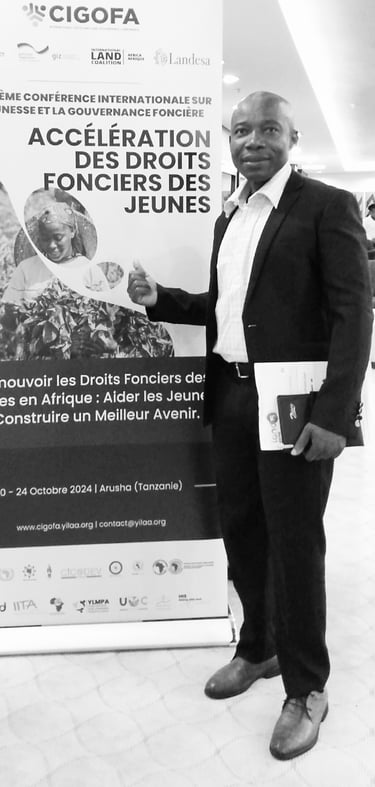
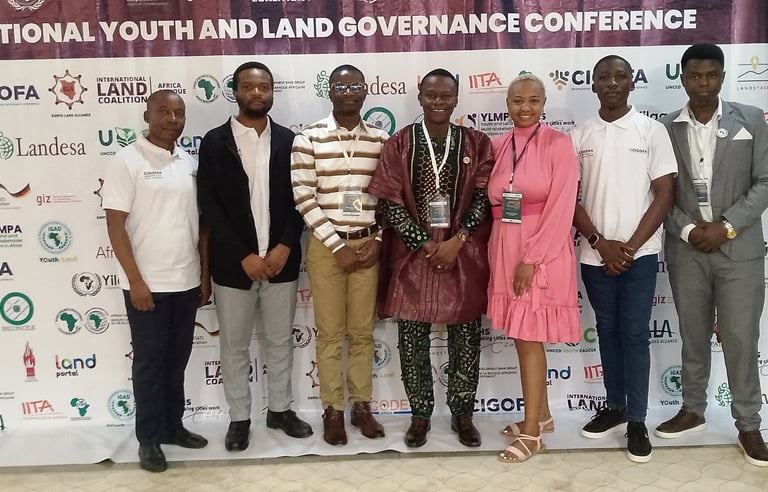

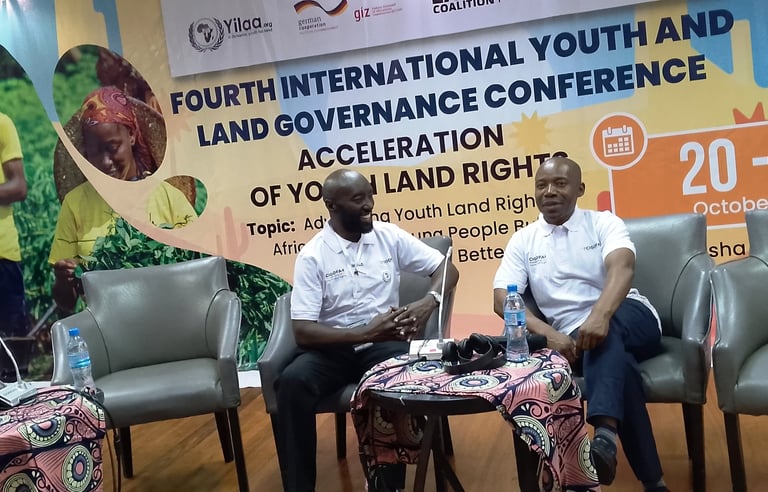

One of the things discussed at this conference is the historical role of traditional leaders, to look at the important role of traditional leaders in protecting land in Africa throughout history. Understanding this role helps us understand its implications for the land rights of young people today.
4th CIGOFA, International Youth and Land Conference in Africa.
Mount Meru Hotel, Arusha _Tanzania.
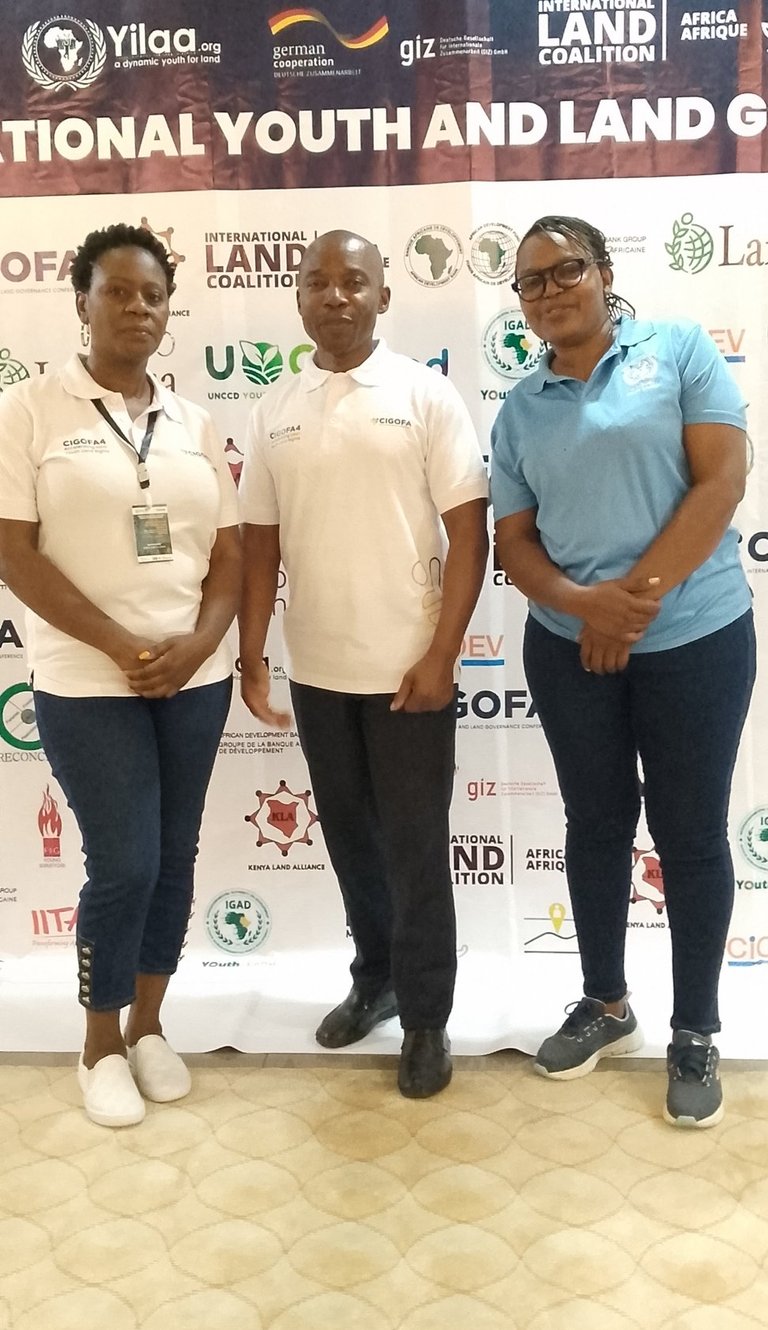

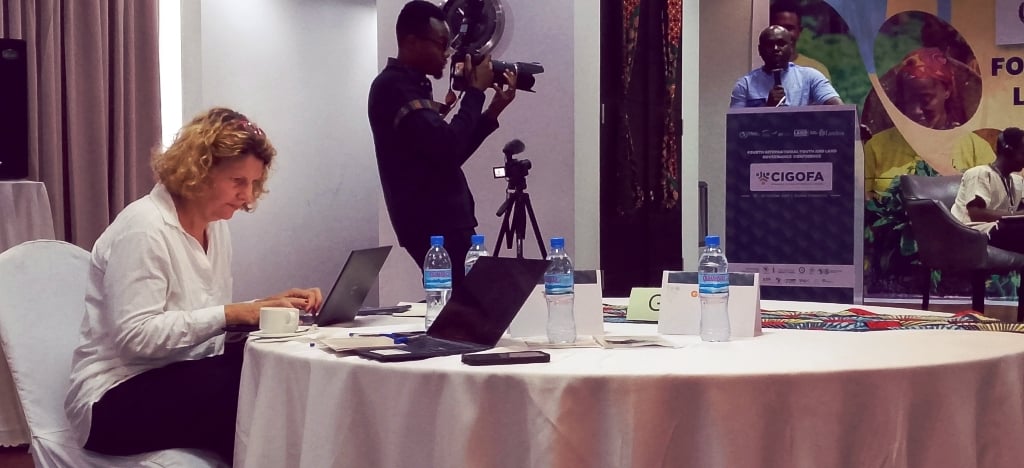



CIGOFA 4 TOPICS;
As we strive to empower young people in Africa to access land fairly, it is essential to explore the collaboration between youth and traditional leaders. Traditionally, these leaders have been pivotal in safeguarding land rights across the continent, acting as custodians of both heritage and resources. However, their role has evolved over the years, influenced by socio-economic changes and the growing voices of the youth. This shift presents both challenges and opportunities for land rights advocacy, necessitating dialogue and partnership between generations. By fostering understanding and cooperation, young people can effectively engage with traditional leaders to navigate the complexities of land tenure, ensuring that their rights and aspirations are recognized and protected. Promoting this collaboration not only enhances land accessibility for youth but also preserves the cultural significance of land in communities, leading to a more equitable future for all.
Access to land is a fundamental right that holds significant importance for young people in African countries, particularly as the youth population continues to rise. Ensuring that young individuals can utilize and control land resources plays a vital role in fostering economic growth, empowering communities, and encouraging sustainable development. By providing access to land, we enable young people to engage in agricultural activities, start businesses, and create jobs, thereby enhancing food security and reducing poverty. Furthermore, granting land rights helps to instill a sense of belonging and responsibility among the youth, encouraging them to invest in their communities and contribute positively to society. As we recognize the challenges posed by urbanization and climate change, prioritizing land access for the younger generation becomes more crucial than ever, shaping a brighter and more sustainable future for all.
During the conference, we delved into the unique challenges faced by indigenous youth, particularly those from the Ogiek community. These young individuals confront significant obstacles in securing their land rights, and bringing attention to these issues is crucial for developing inclusive policies tailored to their specific circumstances. By highlighting their experiences, we not only illuminated broader societal concerns but also ignited vital conversations about effective strategies to protect the rights and cultural heritage of all migrating youth. Our discussions underscored the essential connection between these young people, their land, and their identity, ensuring that their voices are heard and considered in policy-making processes. By working together, we can create a future that honors the rights and contributions of indigenous youth, fostering a more equitable society for all.
Securing land rights for young people is vital for ensuring a sustainable and prosperous future. By empowering the youth with ownership and access to land, we not only provide them with a foundation for economic stability but also encourage responsible stewardship of natural resources. Exploring ways to enhance collaboration between traditional authorities and the younger generation is crucial in this endeavor. Strengthened partnerships can facilitate knowledge exchange, allowing for the integration of traditional practices with modern approaches to land management. As we work towards this goal, it becomes imperative to foster dialogue and trust between these groups, ensuring that the voices of young people are heard and considered in decision-making processes. Ultimately, by prioritizing land rights for youth, we are laying the groundwork for a thriving community that values inclusivity and innovation.
In our recent discussions, we focused on the importance of understanding the views and concerns of young people regarding land rights. It is essential to recognize that the perspectives of the younger generation often differ from those of traditional leaders. By bridging these generational gaps, we can foster harmony and cooperation that benefits both groups. Engaging in open dialogues allows for a better understanding of the unique challenges young people face, enabling traditional leaders to acknowledge and address their concerns effectively. Ultimately, this collaborative approach not only strengthens relationships within communities but also paves the way for more equitable land rights, ensuring that the voices of youth are heard and respected in the decision-making processes. Such synergy could lead to lasting solutions that honor both tradition and the evolving needs of society.
The housing needs of youth in Africa are a pressing issue that deserves greater attention, particularly as these young individuals are pivotal in shaping the continent's economic landscape, civil service, and other vital sectors. Unfortunately, their housing conditions often remain inadequate, especially in urban environments where they grapple with exorbitant rent prices and limited access to essential utilities. These challenges not only hinder their personal development but also stifle their potential contributions to society. Addressing these housing issues is crucial for empowering the youth and ensuring their active participation in building a sustainable future for Africa. By focusing on improving housing conditions, we can create an environment where young people thrive and, in turn, fuel progress across various sectors.
Youth migration to urban areas has become a significant phenomenon, particularly among communities like the Ogiek. This transition often involves complex realities, where young individuals face multiple challenges as they navigate their new environments. In our examination, we not only analyzed data but also highlighted the personal narratives of these youths, revealing a tapestry of motivations behind their migration. Economic opportunities, educational aspirations, and the search for a better quality of life drive their decisions. However, alongside these hopes, they confront issues regarding land rights and societal integration, which can complicate their urban experience. Understanding the interplay of these factors is crucial in addressing the needs and rights of Ogiek youths as they adapt to urban life. Their stories illuminate the broader implications of youth migration, urging us to consider both the opportunities and the obstacles they encounter.
Throughout history, traditional leaders in Africa have played a crucial role in safeguarding land and maintaining communal ties. Their authority and deep-rooted connections to the land have allowed them to navigate complex social dynamics and protect the rights of their communities. By managing disputes and establishing customary laws, these leaders have ensured that land remains a vital resource for generations. Understanding their historical significance helps illuminate the current landscape of land rights for young people in Africa. As young generations seek equitable access to land, recognizing the legacies of traditional leadership becomes essential in advocating for their rights and understanding the intricate balance between tradition and modern legal frameworks. This awareness not only empowers youth but also fosters a deeper appreciation for the cultural significance of land, ultimately shaping sustainable practices for the future.
We recognized the importance of bridging the gap between youth and traditional leaders, advocating for structured conversations that foster meaningful dialogue and mutual understanding. By creating dedicated platforms for these interactions, we aimed to empower young people to voice their ideas and concerns while allowing traditional leaders to share their wisdom and insights. These discussions not only build trust but also encourage collaboration in addressing societal challenges. Through this initiative, we hope to create a culture of openness where both generations can learn from one another, paving the way for innovative solutions and a united community. By facilitating these exchanges, we are laying the groundwork for a more inclusive future where every voice is valued.
